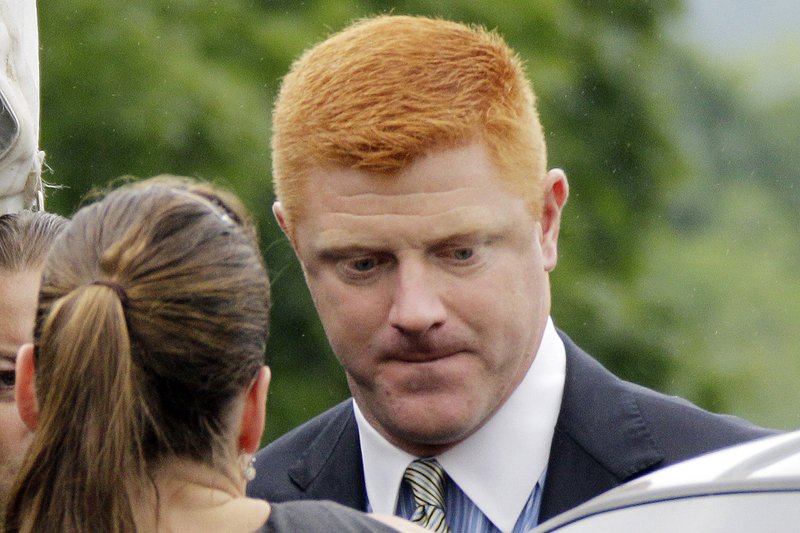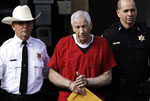BELLEFONTE, Pa. -- A lawsuit by a former Penn State coach whose testimony helped convict fellow assistant Jerry Sandusky of being a sexually violent predator goes to trial today over allegations that the university defamed him and wrongly refused to renew his contract.
Mike McQueary, now 42, played quarterback at Penn State before becoming a member of Joe Paterno's coaching staff.
But he became best known as the assistant who went to Paterno in 2001 to report seeing Sandusky, then a retiree with gym privileges, sexually molesting a boy in the team shower. Sandusky was not arrested until a decade later, leading to accusations of a high-level cover-up.
Nine women and three men were chosen for the jury last week. Both sides will make opening statements today.
McQueary was suspended with pay from the football program in 2011, when the first charges were brought in the case. After Sandusky's conviction in 2012 on charges of abusing 10 boys, McQueary learned he was being terminated from his $140,000-a-year job.
He claims in his whistleblower lawsuit that he was retaliated against for helping prosecutors, wrongly misled by high-ranking administrators who first heard his story in 2001, and defamed.
His own role in the scandal has also drawn scrutiny because he did not physically intervene in the sexual assault of the boy, and because he didn't go to the police.
McQueary went to Paterno's home a day after seeing Sandusky and the boy to discuss what had happened. Paterno alerted Tim Curley, the athletic director at the time, and Gary Schultz, a vice president at the time, and McQueary met with them a week later.
Paterno's handling of the complaint was eventually cited by trustees as one of the reasons for his firing in late 2011. Paterno died a few months later.
In his lawsuit, which seeks more than $4 million, McQueary claims Curley and Schultz wrongly led him to believe that they considered it a serious matter and that they would respond appropriately.
As a result, the lawsuit claims, McQueary "has been labeled and branded as being part of a cover-up," making it impossible for him to find work as a football coach.
He also claims he was defamed by a news release issued by Graham Spanier -- Penn State president at the time -- on the day Sandusky was charged, expressing full support for Curley and Schultz, who both had also been charged criminally for not reporting the abuse claim and other offenses.
The lawsuit says Spanier's statement and comments he made a few days later to athletics staff "clearly suggest" McQueary had lied before a grand jury and to police. Spanier is also accused of failing to properly report suspected abuse and endangering children. He is awaiting trial.
Both Curley and Schultz invoked their Fifth Amendment right against self-incrimination when attorneys sought to question them during the pretrial phase of the case. Spanier has not said whether he would testify.
McQueary has already told his story to a grand jury, at a preliminary hearing and at Sandusky's 2012 trial.
Sandusky, 72, is serving a 30- to 60-year sentence at a prison in southwestern Pennsylvania. He maintains his innocence.
During the Sandusky trial, McQueary said he did not say anything to Sandusky or the boy, estimated at age 10 to 12, when he saw them together. Instead, he went to his office and called his father, who advised him to come to his home to convey what he had seen. Early the next day, McQueary contacted Paterno.
Asked during the trial whether he called police, he replied that he felt that he had called police because Schultz had an oversight role with campus police as vice president for business and finance.
It was only an anonymous email sent to the district attorney in November 2010 that led investigators to first approach McQueary in the case.
Sandusky was convicted of 45 counts, including four that involved the shower encounter.
The criminal case against Spanier, Curley and Schultz is still pending.
A Section on 10/17/2016


